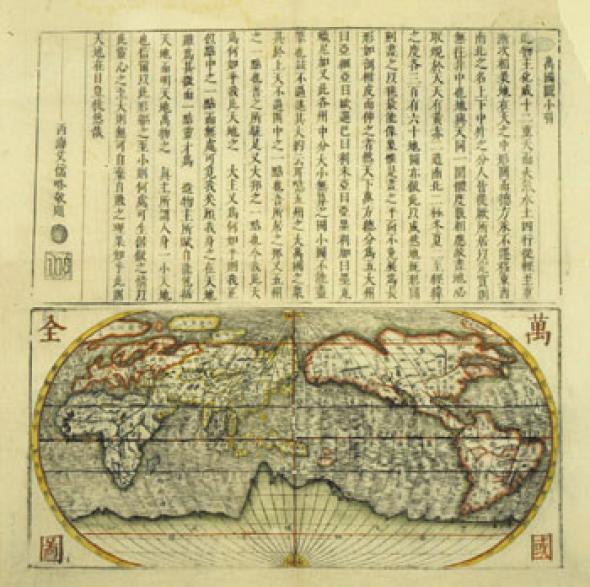CYBERHYPE IV - Chinese-Whisper Markets ('Have you not heard of the wanderers of Yueh?' - Hsu Wu Key (Ancient Taoist Mystic))
Beijing has won the 2008 Olympics.CCRU is watching for what is brewing at the margins.
When it comes to its interpretation of human rights, there is little doubt about the Chinese state’s authoritarianism. But contrary to public opinion, or inference, its economy is no simple state-steered story. CCRU looks at the world’s biggest market – from a different perspective
Beijing has won the 2008 Olympics. This victory is widely viewed as vindication of a model of economic development that is centred on the strength of an authoritarian state. CCRU is watching for what is brewing at the margins. It looks not to the diktats of a Politburo but to forces seeping in from the periphery. China calls itself the Middle Kingdom but it still has edges and increasingly the edges are taking over.
Nowhere is this clearer than in Shenzen, a small town on the Pearl River Delta. In 1979 – when it achieved the freedom granted to the Special Economic Zones – Shenzen was nothing but farmland. Twenty-two years later its streets are filled with skyscrapers and frenzied shoppers, the product of an economy growing at a staggering 34 per cent a year. The key to this success lies precisely in its distance from the centre. In Shenzen there is a saying: ‘the mountains are high and the emperor is far away.’
State-centred Confucian society was traditionally hostile to traders. As early as the late Chou dynasty (1100 –770 BCE), undesirables were banished to the areas south of the Yangtze river. Merchants were exiled to the edges of the world, populated by pirates and Taoist sorcerers. In Chinese hyperstitional lore these edges are known as the lands of Yueh.
This zone – on the southern coastal edge of the mainland – bred a maritime culture of commercial dynamism and entrepreneurial risk that was sharply distinct from the inward-looking, land-locked, state power of the North. Yueh spawned a hybrid population with an offshore mentality, inspired less by the rigidity of Confucianism than by ‘the underground anti-authoritarian counter-cultures of Taoist and Zen Buddhist heterodoxies, that long have flourished on the Chinese periphery.’<*> It is this hybrid, dynamic, peripheral culture, rather than the state, that is the engine of economic growth in the Chinese world.
For thousands of years the Yueh culture spread outside its borders. Coastal trade brought it to Siberia, Korea, Japan, Indonesia, through the Indian Ocean, the Malay Peninsula, and across to the Indian subcontinent. This overseas movement dramatically accelerated when, in 1276, the Mongols invaded and previously sedentary populations swarmed down from the North. Forced outward by the influence of the nomads, the people of Yueh dispersed.
Today there are approximately 60 million Chinese living outside the mainland. This makes the Chinese diaspora the second largest in the world. By far the majority of these originate from the southern coastal provinces, regions which were once the ancient Kingdom of Yueh.
This diasporic population has produced its own distinct market culture unlike that of the colonists, merchants and multinationals from Europe, America and even Japan. Chinese business operates in an exterior relation to state-backed capitalism with its lumbering bureaucracies, centralised decision making processes and national headquarters. It functions instead through a true transnationalism, planet-wide networks of communication and connections (guanxi) and a proliferation of small and medium-sized businesses familiar with insecurity and limber enough to manoeuvre in unfamiliar environments.
In the 21st century this Chinese diaspora has reconnected with its home on the mainland’s southern periphery. Through its influence, a decentred outward-looking mode of development based on foreign investment and export-oriented growth has been introduced. It is this, rather than the central committee, that is transforming the fate of China. Beijing has seven years to prepare to welcome the world inside its borders, but the outside has already invaded. The exiled wanderers of Yueh have returned.
CCRU <it AT ccru.demon.co.uk>The CCRU (Cybernetic Culture Research Unit) is an autonomous collective of hyperculture researchers involved in the production of pulp theory/fiction hybrids [http://www.ccru.demon.co.uk]
<*>Ip, David, Constance Lever-Tracy, and Noel Tracy. Chinese Diaspora and Mainland China An Emerging Economic Synergy, Macmillan Press, 1996; Booth, Martin, The Dragon Syndicates, Bantam Books, London, New York, 2000
Mute Books Orders
For Mute Books distribution contact Anagram Books
contact@anagrambooks.com
For online purchases visit anagrambooks.com








